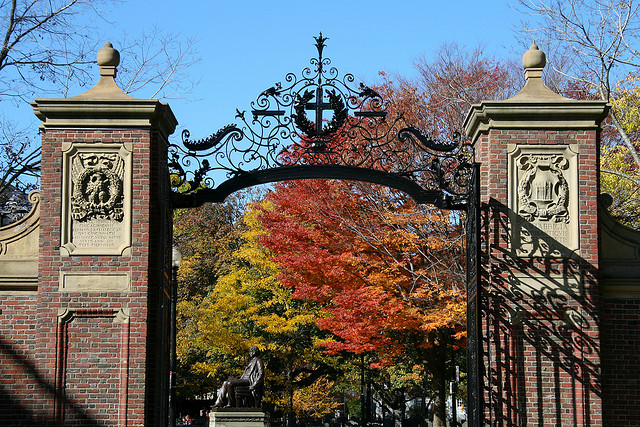Recruiting season comes every year at Harvard. In fact, I think it might come twice a year. Truth be told, I don’t really know when recruiting season is. There comes a day every autumn and/or spring when, strolling down Plympton Street at dusk, I see an army of well-dressed undergraduates hurrying past me into the New England night, and I know it is recruiting season.
Recruiting can be a polarizing topic here. For many students, it is a busy, stressful time: info sessions are attended, hands are shaken, free food is accepted, and bonds that will last at least several minutes and at most a few weeks are forged. (This, I’m told, is networking, and there’s a chance that recruitees’ future happiness and success depend on it.) Other students spend recruiting season lamenting the fact that so many of their peers take jobs in finance and consulting, careers that ultimately, these students argue, offer high salaries but contribute little to society.
But there is yet another group of students who are often forgotten in the fray. You probably have not heard much from us, but that is only because we’re not saying anything. We are united only by our apathy, and although most of us have no interest in spending two or—god forbid—more years of our lives working in finance or consulting, we take no issue with the students who do pursue those careers. Let me explain why I count myself in this group.
We like to celebrate diversity at Harvard, and in many ways, this campus has become a much more diverse place over the decades. Still, for most undergraduates, getting into Harvard meant following the same path. We took the most advanced classes in high school, we excelled in them, we wrote good essays, we tested well, and we each had a handful of impressive extracurricular achievements to boot. There are exceptions to any rule, but for the vast majority of us, this was the path that took us to Harvard. It is an uphill, but well-marked, path, and for most—but certainly not all—of us, the question was not whether we would attend college, but where.
Senior year of college is the first time when most of us face truly uncertain futures. Of course, I’ve always known this day would come, but I had imagined it would be different. No doubt these past four years have been a formative time for me, but I had always thought they’d be more formative. I imagined that I would leave college knowing exactly what I wanted in life and exactly what I would need to do to get it. But I’m increasingly aware that the path to fulfillment—whatever the hell that is—is not a leisurely walk up a gentle slope. I look down the road, and I realize that on this path there is scrambling and rock climbing, wrong turns and backtracking. It is easy to get lost, and the farther I hike, I fear, the farther I might feel from my destination. (One day when I’m old and wise, I’m sure I will understand that the hike itself was my destination.) This is an exciting time of life, but it is also—and no one had properly warned me of this—incredibly scary. The world is a big, intimidating place, and it is hard not to feel a little small and confused and just overwhelmed by it all.
So what does any of this have to do with recruiting? We are often reminded that a Harvard education is a privilege, and with this privilege comes a responsibility to give back to our society. I believe this to be true, and I think that, ultimately, giving back will be an essential part of living a fulfilling life. But we seniors also face the stark reality of needing to find the trailhead at a time in our lives when, quite frankly, we are all pretty clueless about the world, in general, and what we want from it, in particular. If one of us thinks that his or her path to a fulfilling life might begin on Wall Street, at a consulting firm, in the Teach for America corps, at the White House, in Hollywood, or in a tent in Harvard Yard, who are any of us to say otherwise? At the end of the day, we’re all just trying to find our ways and make a difference in this crazy, scary world, and we should be supportive of our classmates’ endeavors as we begin our journeys beyond the gates.
Among other things, we may need to borrow money from our investment-banking friends some day. Let’s hope they’re well-networked.
Jeremy Patashnik ’12 is the Humor Editor and the U.S. Editor Emeritus.
Photo Credit: Tim Sackton, Flickr
